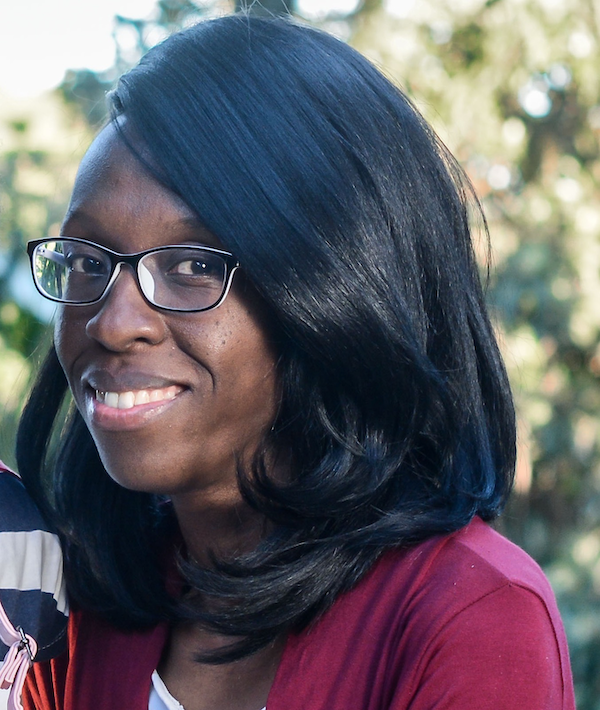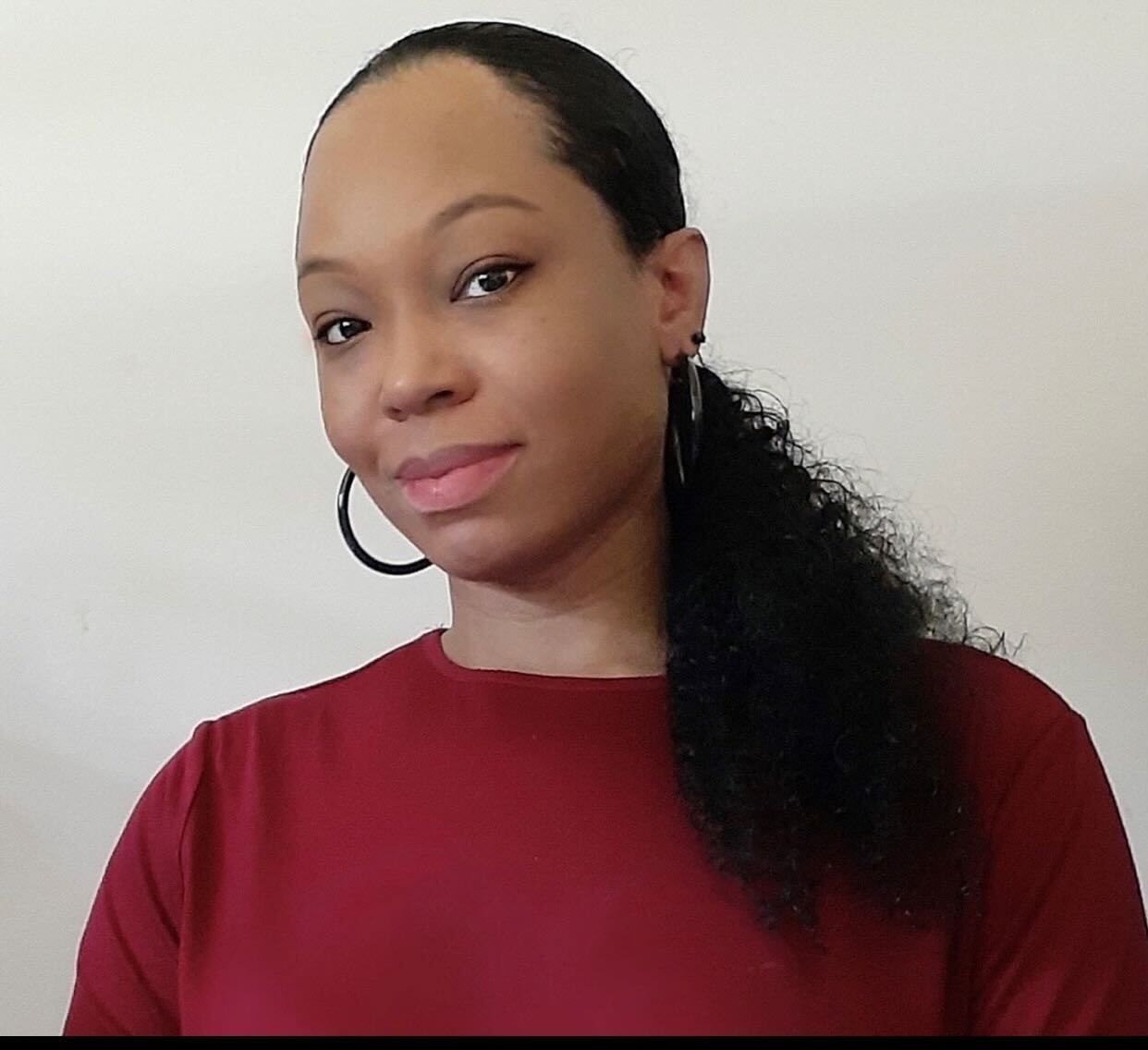I’ve completed a few comedy writing programs, and in each one the teacher opens with the same piece of advice: “write in your own voice.” It feels like a simple instruction, but it’s intensely intimidating. What if my voice is super irritating? What if I sound dumb? What if I am dumb? And, honestly, what even is my voice?
The answer is important for anyone writing scripts for a podcast or video. Listeners and viewers want to connect with a human being, not a person reading something into a microphone. So it’s critical to find your voice, and then to write scripts in a way that will sound natural, even spontaneous, when you read them aloud.
To get some insight on how to do that, we talked to someone who has built an award-studded career on writing for her own voice, and who gets paid to teach other people how to write in their voices. Terri Trespicio is a former radio host and the author of Unfollow Your Passion: How to Create a Life that Matters to You; her TEDx talk, "Stop Searching for Your Passion," has surpassed 7 million views on YouTube.
The full Q&A from our email conversation with Terri is below, and it’s got a wealth of insights on writing for your voice. But first, we’ve derived some advice from everything she told us.
4 ways to write for your own voice
- Forget the rules. The style and grammar rules that govern writing can make your prose sound stilted when reading it aloud. For example, the rules will tell you not to end a sentence with a preposition; so technically the phrase “not that I’m aware of” should be “not of which I’m aware.” But who talks like that?
- Write like you talk. A classic writing dictate, and one that’s almost as intimidating as “write in your own voice.” How? Try reading everything aloud — if it doesn’t sound like something you’d say in real life, change it. This is true at the sentence level: you might start sentences with “So…” when you’re writing for a script, but not for the page. And also at the composition level: multi-paragraph setups and formal transitions that often make a written piece cohesive will be dull and plodding when read aloud.
- Write a “backstage draft.” This is Terri’s term for a first draft — written quickly, without stopping to revise as you go. That last part is the key — revisions are often where you overthink it, worry about sounding smart, or add complexity. Try setting a timer, then sitting down and just jamming out your script, and don’t let yourself edit or revise until it’s done. You may get closer to your voice this way than on a carefully crafted draft.
- Be 80% prepared. You want to know your script, which isn’t the same as memorizing it. Review it until you know exactly where you’re going and how you’ll get there; focus on internalizing how one point leads to another, and on the emotion you’re trying to elicit at every point. Then have the confidence to let yourself riff a little – that’s where you’ll start to sound spontaneous and authentic.
Our conversation with Terri Trespicio
Why is writing for your own voice so challenging when you speak in it every day?
Part of the reason we find writing anything “hard” is because of how we’re taught to do it — and how we’re conditioned to do it “right” in order to please the teacher, get a good grade, or avoid being criticized. Wanting to get things right is the problem — mainly because we put on this kind of formal “voice” when we go to write things. We worry about what the rules are, or what you “should” say and how you should say it.
The key is unlearning all of that. Because the only thing that keeps you from being really you, especially on the page, is an idea that you’re supposed to do or sound like something else.
Are there certain tricks you use to write scripts so your voice will be there when you read them aloud?
I write the way I talk. People remark on it all the time. But it’s not a trick; I’m saying here what I would say to you if I were talking to you.
So the “tricks” are really the things I don’t do: I don’t try to follow a formula or say what other people say. I think of my writing not as this other thing, but as the act of channeling my voice through my fingers instead of through my mouth. It’s the same brain behind it, the same instinct, the same attitude.
Ask yourself, what is keeping you from saying what you want to say? What goes through your head before your words land on the page? If you’re just worried about what people will think, well, no wonder you’re stuck.
What is your process for writing something in your own voice?
I teach writing workshops for people who want to use writing to access their brilliance, and to make it easy to clarify great ideas, which is what writing does. But we don’t do that by being perfect. We draft. We write quickly, without thinking. I tell participants, “Don’t think; write.”
Write a dirty draft, even when you’re tired or don’t feel like it – just bang it out and say “I want to say this, and then I want to get to that.” I call it a backstage draft. Then later, when you are refreshed and ready, you have something to work on rather than a blank page.
Of course, revision is key – but most of us go in to revise too soon. You can only revise what is written, and if you try to revise before you write, you’ll be stuck.
Other things that stop people from sounding natural on the page: overdoing setups and transitions. Start hot out of the gate. Don’t waste time with throat-clearing. Engage from the word go. What would get YOUR attention? What is fun to write? Because if you’re bored writing it, guess how your audience will be.
What makes for an engaging script? And an engaging delivery?
I see my own writing, whatever form it takes, as exactly that: a form of communication, not this perfect thing I’m making. Your writing, especially a script, is designed to be a living, dynamic thing. I like having a good script because then it allows you to be flexible, to have fun with the tone.
When it comes to reading out loud, well, never sound like you’re reading [here’s how].
For instance, if I read this right now, I would not give every word equal weight and go into “reading” voice. I would vary the tone, volume, and speed, just like I would if I were talking to you over coffee. A reading voice is unmistakable. To fake it, put in pauses, which help make it sound as if you’re doing it for the first time.
How do you strike a balance between sounding spontaneous and natural in a podcast or on camera while also being prepared?
It’s funny, this idea of “over-preparing” — in some ways there’s no such thing. Having good prep gives you a springboard — you can either use it or bounce off it. The problem is if you sound dependent on what you prepared — rigid, inflexible, or robotic. If you’re able to riff a little, then prepare to 80 percent.
Being unprepared, especially when you’re new to writing and broadcasting, is NOT the way to sound natural. Being really prepared will make you feel confident because you know you have something to rely on. You don’t want to be out there treading water in a panic, and if you’re not prepared, it will show.
I give myself permission to depart from what I’ve prepared if the situation calls for it.
I do a lot of public speaking, and while I might write out the talk in the beginning, I don’t consult a script. I want to know it in my body. But when I’m writing for a script or for a talk — it’s all the same. Writing is talking and the difference in format dictates how quickly you get to your point or how many examples and stories you can use. How I write it is more a reflection of what the audience needs at the moment they’re hearing it, and who they are.




































%20(1).JPG)






